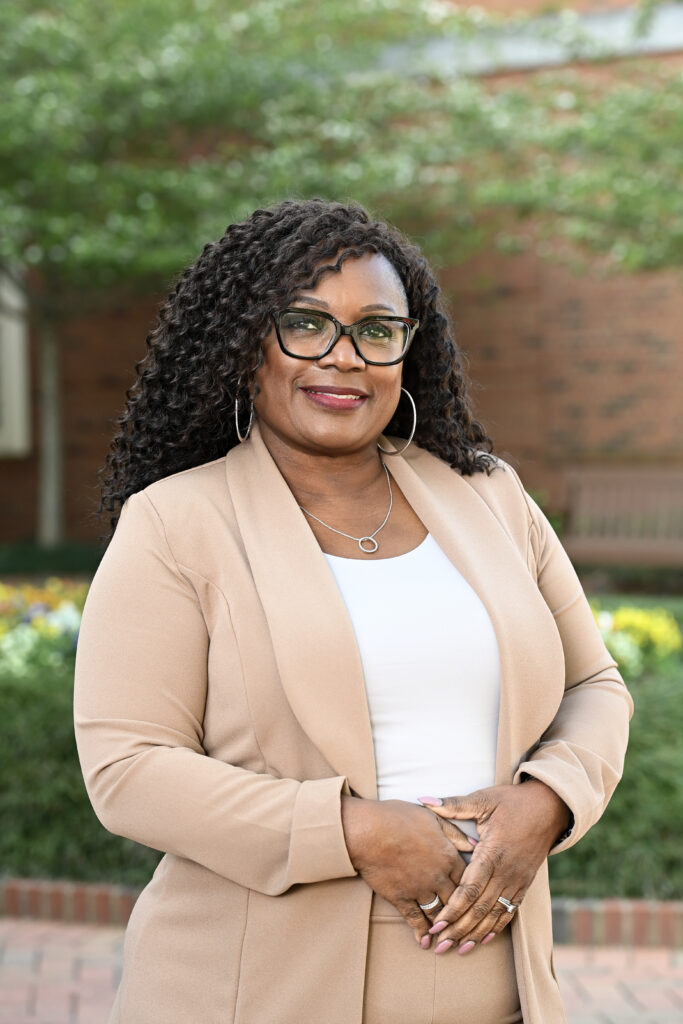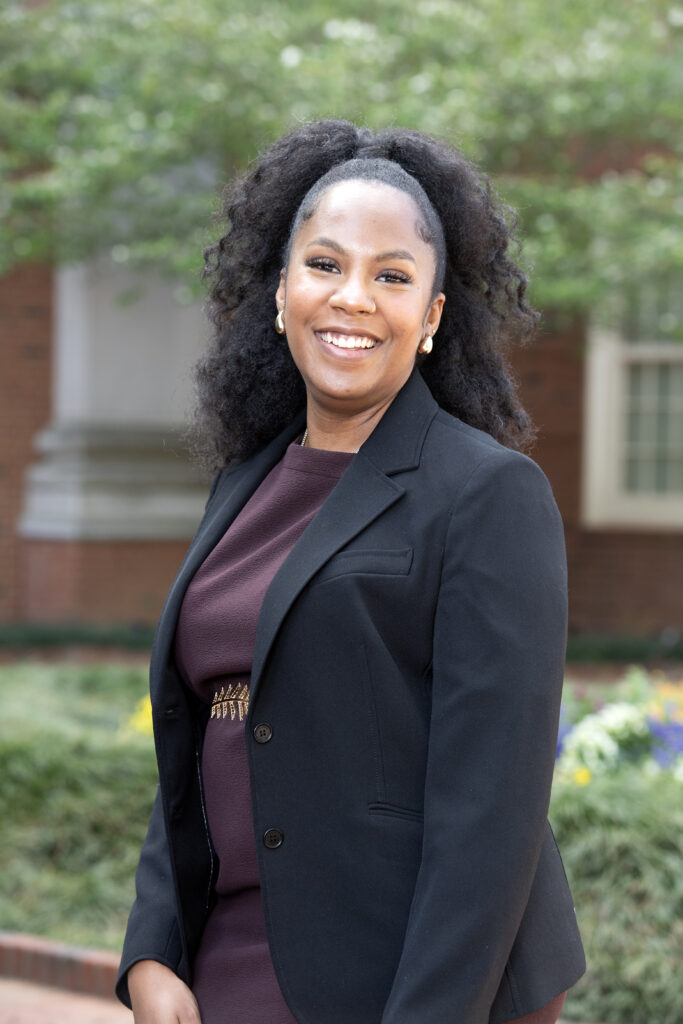By: Javacia Harris Bowser
Two Alabama Schweitzer Fellows are devoting their projects to helping women receive potentially lifesaving cancer screenings and information – one working to get unhoused women cervical care and the other striving to better educate young Black women about breast health. They’re both doing their part in the fight against cancer – by helping one woman at a time.

Tawona Coleman
Tawona Coleman has watched a close friend conquer cervical cancer and two family members battle breast cancer.
“Cancer is near and dear to me,” says Tawona, who’s currently pursuing her Doctor of Nursing Practice (DNP) degree from the University of Alabama at Birmingham School of Nursing.
These loved ones have been front of mind as she has worked to address access to cervical care for women at Pathways, a shelter for women and children experiencing homelessness, as part of her Albert Schweitzer Fellowship project.
“I’ve always had a place in my heart, even before I became a nurse, for the underserved, for those who are not able to get the resources that they need just to survive on a daily basis,” she says, adding that she feels blessed to have the opportunity to work with the women at Pathways.
Alabama ranks third nationally in cervical cancer cases and deaths. Tawona’s project focuses on awareness and education to advance cervical cancer prevention in this population of unhoused women.
“I really didn’t know how I would be received,” Tawona says. With breakfast in tow, Tawona began her project not with a formal presentation but by simply talking woman-to-woman with the residents at Pathways.
After using these casual conversations to break the ice, Tawona then partnered with the O’Neal Comprehensive Cancer Center at UAB to organize an informational workshop on cervical cancer. Several women who attended the workshop signed up to receive free cervical cancer screenings.
“It’s going in a really positive direction,” Tawona says of her project.
She plans to continue to meet with the women of Pathways to discuss cancer prevention and other health matters. Also, she’s working with O’Neal Cancer Center, the Jefferson County Department of Health, and Alabama Regional Medical Services to develop a system that will allow the women of Pathways to continue to get referrals and appointments for cervical care and other health services long after her Fellowship project has ended. She’s also creating a screening tool for the social workers at Pathways to help determine if new residents need cervical cancer screenings or mammograms.
Tawona admits that juggling her ASF project with school and her work as a case manager and adjunct clinical instructor with UAB School of Nursing has been tough.
“But if it’s something that you’re passionate about, then you’ll make it a priority,” she says. “So, I’ve learned to just stick with it and follow the program.”
Tawona’s concentration for her DNP program is Executive Nurse Leadership and she believes the Schweitzer Fellowship is shaping her into a better leader.
“They equip us with so many tools,” she says. “The ASF leadership retreats have really impacted me tremendously. It just allows you to look at life so much differently and to understand what you can do to impact others.”

Christine Poole
For the past decade, Christine Poole has worked in radiation oncology as a medical dosimetrist. Through the years, Christine has seen a disturbing increase in young Black women being treated for breast cancer.
“It’s always really hard when I see patients that are my age or that look like me,” she says. “They have aggressive forms of the disease, and they’re at these late stages, and it’s really heartbreaking.”
Christine says when she sees young patients battling late stages of breast cancer she wants to know, “Where did the healthcare system fail?”
This question motivated her to return to school to study public health and inspired her to become a Schweitzer Fellow.
For her fellowship project, Christine, a student at UAB School of Public Health, has partnered with Forge Breast Cancer Survivor Center to promote awareness of early breast cancer detection and overall breast health education among Black women under 40.
“Women under 40 are not routinely scheduled for mammograms and insurance often doesn’t cover mammograms at that age,” she explains. “So those patients really have to advocate for themselves.” Her goal is to arm them with the information to do so.
By participating in Forge’s various community outreach events, Christine has been working to increase knowledge and awareness about risk factors, screening practices, family history, and how to perform self-breast exams. She plans to take her “curriculum crusade” to college campuses as well. Christine aims to connect with at least 40 women under 40 to empower them to speak up for themselves and know what to look for regarding breast health.
For a lasting impact, Christine also plans to create educational videos for the Forge website. Additionally, she’s working with the platform Know Your Lemons to become a global health educator.
Like most fellows, Christine says juggling the fellowship with school and work is a challenge. But Christine says the process has taught her: “I can do hard things.”


